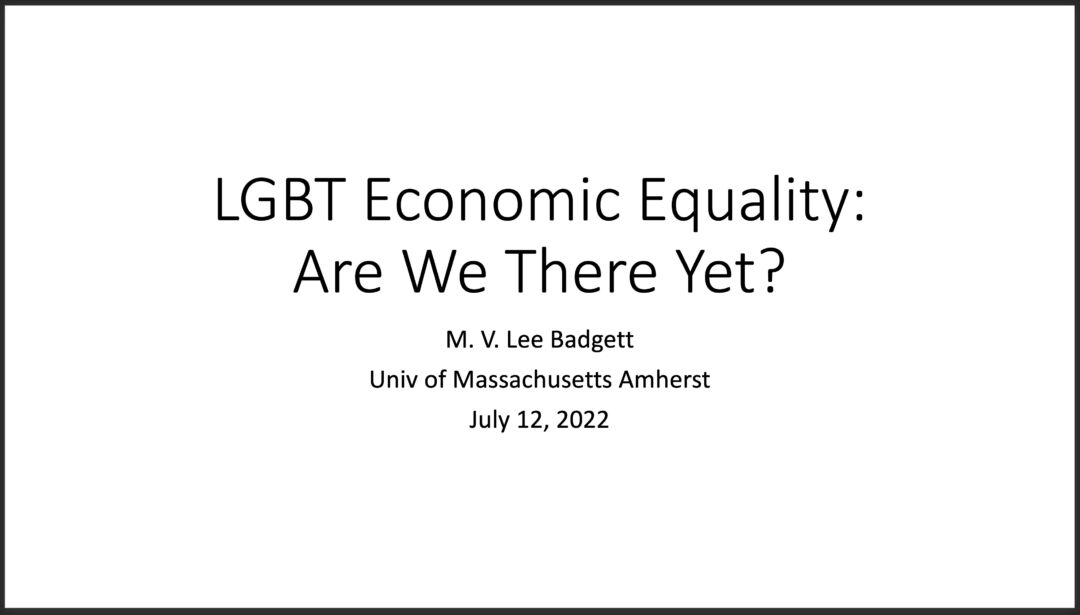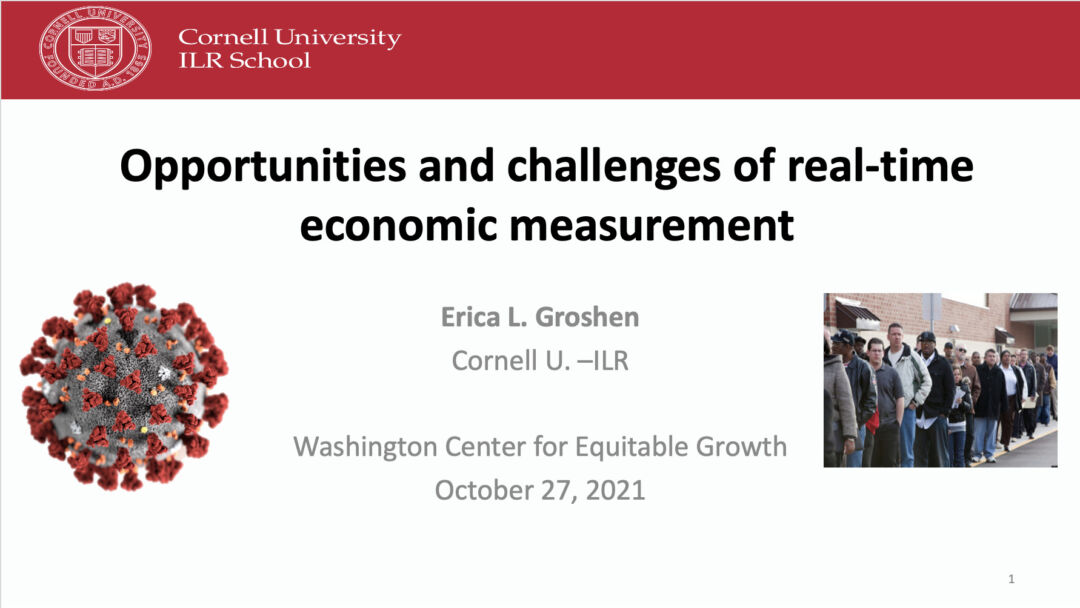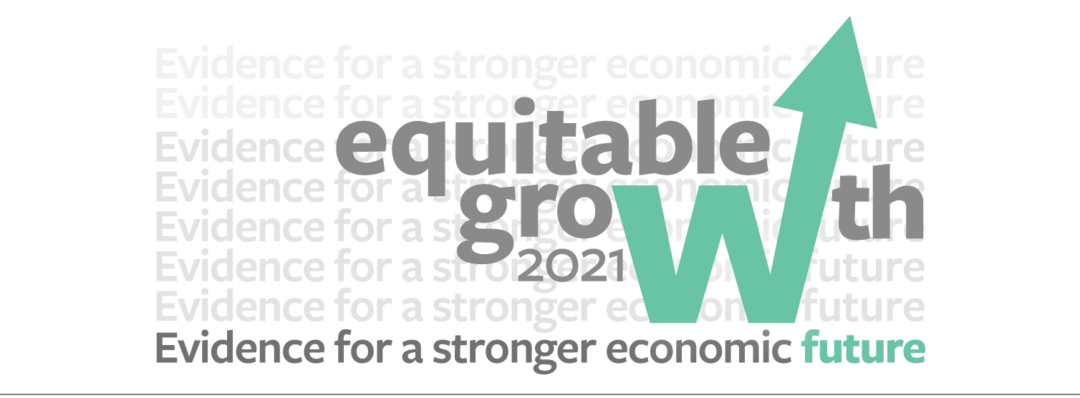Kimberly Adams
Host and Correspondent, Marketplace
Kimberly Adams is a host and correspondent covering the intersection of politics and the economy for Marketplace, Marketplace Morning Report, and Marketplace Tech. Adams is also frequently a guest host on Marketplace’s podcast, Make Me Smart. She covers money in politics, trade, tax policy, and the many other ways the work of decision-makers in Washington affect daily lives and economic decisions across the United States. Previously, Adams reported on the political, social, and economic upheaval in Egypt following the Arab Spring as a freelance journalist based in Cairo. Her work aired on multiple networks in the United States, Canada, the United Kingdom, Ireland, Germany, Hong Kong, and elsewhere. While reporting in Cairo, she received awards from the National Association of Black Journalists, the Religion Communicators Council, and the Association for Women in Communication. She was also competitively selected for the International Women’s Media Foundation “Great Lakes” Reporting fellowship to Uganda, where she reported on environmental, economic, and LGBTQ+ issues. Adams serves on the Board of Governors at that National Press Club in Washington and holds degrees in journalism and political science from the University of Missouri-Columbia, as well as a graduate diploma in political science from the American University in Cairo.
Antoine Prince Albert III
Policy Counsel, Public Knowledge
Antoine Prince Albert III is a policy counsel on the Government Affairs team of Public Knowledge, where he focuses on social media platform governance, Section 230, digital inclusion, net neutrality, and privacy. Prior to joining Public Knowledge, Albert worked at Georgetown University’s Institute for Technology Law & Policy, The Leadership Conference for Civil and Human Rights, the Office of Sen. Ron Wyden (D-OR), and Georgetown’s Center on Privacy and Technology. Before working in public interest technology, he served as an officer of the U.S. Navy and a speech and debate instructor at La Salle College High School. Albert is a founding member of the Georgetown Global TechNet Working Group, a cohort of international academics and thought leaders dedicated to exploring public interest technology in the Global South. He is routinely consulted for critical insights on how technology functions within Black, Latino, and Indigenous communities in the United States, the Caribbean, and Africa. He earned his J.D. from Georgetown University Law Center as a Global Law Scholar, and is a proud summa cum laude, Phi Beta Kappa alumnus of Morehouse College.
Carlos Fernando Avenancio-León
Assistant Professor, University of California San Diego
Carlos Fernando Avenancio-León is an assistant professor of finance at the University of California, San Diego. He is an economist whose work focuses on equitable finance, or the role of financial mechanisms in economic redistribution, and its implications for disadvantaged communities and inequality. Previously, Avenancio-León was an assistant professor of finance in the Kelley School of Business and an affiliate of the Center for Research on Race and Ethnicity in Society at Indiana University Bloomington. Before that, he was a postdoctoral fellow and research scientist at the Massachusetts Institute of Technology’s Golub Center for Finance and Policy. In 2018, as an Equitable Growth grantee alongside his colleague Abhay Aneja, they documented how political empowerment through protecting the right to vote had a positive impact on U.S. labor market inequality for Black workers in the South following the passage of the Voting Rights Act of 1965. Avenancio-León received a Ph.D. in finance from the University of California, Berkeley in 2018 and a J.D. from the University of Puerto Rico in 2011.
Kate Bahn
Director of Labor Market Policy and Interim Chief Economist, Equitable Growth
Kate Bahn is the director of labor market policy and interim chief economist at the Washington Center for Equitable Growth. Her areas of research include gender, race, and ethnicity in the labor market, care work, and monopsonistic labor markets. Previously, she was an economist at the Center for American Progress. Bahn also formerly served as the executive vice president and secretary for the International Association for Feminist Economics. Bahn received her Ph.D. in economics from the New School for Social Research and her B.A. from Hampshire College.
Olivier Blanchard
C. Fred Bergsten Senior Fellow, Peterson Institute for International Economics
Olivier Blanchard is Robert Solow professor emeritus at MIT and Fred Bergsten senior fellow at the Peterson Institute for International Economics. He is a macroeconomist, who has worked on a wide range of issues, from the role of monetary and fiscal policy, the nature of speculative bubbles, the nature of the labor market and the determinants of unemployment, transition in former communist countries, and to forces behind the global financial crisis. In the process, he has worked with numerous countries and international organizations. He is the author of many books and articles, including two textbooks on macroeconomics, one at the graduate level with Stanley Fischer and the other at the undergraduate level. After obtaining his Ph.D. in economics from the Massachusetts Institute of Technology in 1977, he taught at Harvard University and returned to MIT in 1982. He was chair of the economics department from 1998 to 2003. From 2008 to 2015, he was the economic counselor and director of the Research Department at the International Monetary Fund. He is a past editor of the Quarterly Journal of Economics and the NBER Macroeconomics Annual, and founding editor of American Economic Journal: Macroeconomics. He is a fellow and past council member of the Econometric Society, past president of the American Economic Association, and a member of the American Academy of Sciences.
Kristen Broady
Fellow, The Brookings Institution
Kristen Broady is a fellow at the Brookings Metropolitan Policy Program. She is professor of financial economics on leave at Dillard University in New Orleans. She previously served on the faculties of Howard University, Alabama A&M University, Dominican University, Fort Valley State University, and Kentucky State University and as a visiting faculty member at Jiangsu Normal University in Xuzhou, China, during the summer of 2019. Broady served as a consultant for the Joint Center for Political and Economic Studies, a senior research fellow for the Center for Global Policy Solutions, a consultant for the City of East Point, Georgia, and as an HBCU consultant for season two of “The Quad.” Her areas of research include mortgage foreclosure risk, labor and automation, and racial health disparities. She earned a B.A. in criminal justice at Alcorn State University and an M.B.A. and Ph.D. in business administration with a major in economics at Jackson State University.
Lisa Cook
Professor, Michigan State University
Lisa D. Cook is a member of the Washington Center for Equitable Growth’s Steering Committee and professor of economics and international relations at Michigan State University. Prior to this appointment, she was on the faculty of Harvard University’s Kennedy School of Government, deputy director for Africa research at the Center for International Development at Harvard University, and a national fellow at Stanford University. Cook was the first Marshall Scholar from Spelman College and received a second B.A. in philosophy, politics, and economics from Oxford University. She earned a Ph.D. in economics from the University of California, Berkeley, with fields in macroeconomics and international economics.
Lydia DePillis
Reporter, ProPublica
Lydia DePillis is a reporter in the Washington bureau of ProPublica, a nonprofit news organization that investigates abuses of power. Before that, she covered the national economy for CNN in New York, the Texas economy for the Houston Chronicle, labor and the workplace for The Washington Post, technology for The New Republic, and local land use for the Washington City Paper. DePillis is from Seattle and holds a B.A. from Columbia University.
Dania V. Francis
Assistant Professor, University of Massachusetts, Boston
Dania V. Francis is an assistant professor of economics at the University of Massachusetts Boston. Her current research involves using experimental and quasi-experimental methods to identify structural causes of racial and socioeconomic academic achievement gaps. More broadly, Francis’ research interests include examining racial and socioeconomic disparities in education, wealth accumulation, and labor markets. She is a board member of the National Economics Association. Francis received her doctorate from Duke University.
Ryan Gerety
Senior Advisor, United for Respect
Ryan Gerety is a senior advisor at United for Respect. As a researcher and computer scientist, Gerety has spent the past 15 years focused on the economic and political implications of new technology. She has worked with organizers and grassroots organizations to understand and respond to the technological acceleration of structural inequality, on issues including: investment redlining, data-driven and algorithmic decision-making, the integration of surveillance technologies into public infrastructure, data privacy and surveillance, and community-owned broadband. She recently served as a Ford Foundation fellow and was previously a senior field analyst at the Open Technology Institute and associate director of research at Social Compact.
Alix Gould-Werth
Director of Family Economic Security Policy, Equitable Growth
Alix Gould-Werth is the director of family economic security policy at the Washington Center for Equitable Growth. Prior to joining Equitable Growth, she was a human services researcher at Mathematica Policy Research. Gould-Werth holds a Ph.D. from the University of Michigan and a B.A. from Swarthmore College. Her work focuses on poverty and inequality and has been published in Monthly Labor Review, Journal of Policy Analysis and Management, Social Service Review, Sociology of Race and Ethnicity, and Survey Practice.
Michelle Holder
President & CEO, Equitable Growth
Michelle Holder is the president and CEO of the Washington Center for Equitable Growth. She is an associate professor, effective until August 2021, at John Jay College, City University of New York. Her research focuses on the Black community and women of color in the U.S. labor market. Named one of 19 Black economists to watch by Fortune magazine, Holder has authored two books, including African American Men and the Labor Market during the Great Recession in 2017 and most recently, Afro-Latinos in the U.S. Economy, published in May 2021. Holder has been a faculty member at the City University of New York since 2014. Prior to joining CUNY, Holder spent a decade working as an applied economist in the nonprofit and government sectors, including as senior labor market analyst at the Community Service Society of New York and an associate financial analyst and economist at the Office of the New York State Comptroller. She also served for nearly 7 years as finance director at Dēmos. She holds a Ph.D. and an M.A. in economics from the New School for Social Research, an M.P.A. from the University of Michigan, and a B.A. in economics from Fordham University. Holder and her work are regularly featured in media outlets, including The New York Times, The Washington Post, The Atlantic, The New Yorker, Vox, MSNBC, NPR, PBS, and CNN. Born and raised in New York City, Holder has two daughters.
Hilary Hoynes
Professor, University of California, Berkeley
Hilary Hoynes is a member of the Washington Center for Equitable Growth’s Steering Committee, a professor of economics and public policy, and holds the Haas Distinguished Chair in economic disparities at the University of California, Berkeley, where she also co-directs the Berkeley Opportunity Lab. Her research focuses on poverty, inequality, food and nutrition programs, and the impacts of government tax and transfer programs on low-income families. She is a member of the American Academy of Arts and Sciences, the National Academy of Social Insurance, and a Fellow of the Society of Labor Economists. Previously, she served on the National Academy of Sciences Committee on Building an Agenda to Reduce the Number of Children in Poverty by Half in 10 Years. Additionally, she was a member of the Federal Commission on Evidence-Based Policy Making. Hoynes received her Ph.D. in economics from Stanford University and her undergraduate degree in economics and mathematics from Colby College.
Letitia James
Attorney General, State of New York
Letitia “Tish” James is the 67th attorney general for the state of New York. She is an experienced attorney and public servant with a long record of accomplishments and the first woman of color to hold statewide office in New York, as well as the first woman to be elected attorney general. James previously served as public advocate for New York City, representing the city’s most vulnerable communities and passing legislation that protects the city’s workers and their families. Prior to serving as public advocate, James represented the 35th council district in Brooklyn in the New York City Council for 10 years, and served as head of the Brooklyn Regional Office of the New York State Attorney General’s Office. James began her career as a public defender at the Legal Aid Society. A proud Brooklynite, she is a graduate of Lehman College and Howard University School of Law.
Maryam Janani-Flores
Deputy Policy Director, Washington Center for Equitable Growth
Maryam Janani-Flores is the deputy policy director at the Washington Center for Equitable Growth. She spent the prior decade-plus working throughout the research-to-policy pipeline on issues related to supply chains, small businesses, healthcare and public health, labor, and gender. A Texan, Janani-Flores began her career in government advising former U.S. Rep. Beto O’Rourke (D-TX), including as policy director on his U.S. Senate campaign, and subsequently served as legislative director to U.S. Reps. Abigail Spanberger (D-VA) and Norma Torres (D-CA). Prior to working on Capitol Hill, Janani-Flores worked as a strategy consultant at the social impact firm Dalberg Advisors, a project associate at the University of California, Berkeley’s Center for Effective Global Action, and a research assistant with Innovations for Poverty Action in Kenya. She holds an M.P.A. in economics and public policy from Princeton University and a B.A. in neurobiology from Harvard University.
Hakeem Jeffries
Congressman, U.S. House of Representatives
U.S. Rep. Hakeem Jeffries (D-NY) represents the eighth congressional district of New York. Serving his fifth term in the United States Congress, Rep. Jeffries is a member of the House Judiciary Committee and House Budget Committee, as well as chairman of the House Democratic Caucus, having been elected to that position by his colleagues in November 2018. In Congress, Rep. Jeffries is a tireless advocate for social and economic justice. Prior to his election to the Congress, Rep. Jeffries served for 6 years in the New York State Assembly, where he authored bills to protect the civil liberties of law-abiding New Yorkers during police encounters, encourage the transformation of vacant luxury condominiums into affordable homes for working families, and improve the quality of justice in the civil court system. He also sponsored and championed groundbreaking civil rights legislation to end prison-based gerrymandering in New York State. Rep. Jeffries obtained his bachelor’s degree in political science from the State University of New York at Binghamton, where he graduated with honors for outstanding academic achievement. He also has a master’s degree in public policy from Georgetown University and a J.D. from New York University School of Law, where he graduated magna cum laude and served on Law Review.
Brenda Mallory
Chair, White House Council on Environmental Quality
Brenda Mallory was confirmed by the U.S. Senate on April 14, 2021 and sworn in as the 12th chair of the Council on Environmental Quality. She is the first African American to serve in this position. As chair, she advises the president on environmental and natural resources policies that improve, preserve, and protect public health and the environment for U.S. communities. She is focused particularly on addressing the environmental justice and climate change challenges the nation faces while advancing opportunities for job growth and economic development. Mallory has served in a number of senior roles throughout her federal career at the Environmental Protection Agency and CEQ. She has a bachelor’s degree in history and sociology from Yale College and a J.D. from Columbia Law School.
J.W. Mason
Associate Professor, John Jay College, City University of New York
J.W. Mason is a fellow at the Roosevelt Institute and economist with the Macroeconomic Analysis and Progressive Thought team. His focus is on public spending and government debt; finance and monetary policy; and the importance of strong demand and full employment. He also works on trade policy, corporate finance, and decarbonization. Mason is also an associate professor of economics at John Jay College, City University of New York, where he helped establish their master’s program, which is one of a handful of graduate programs in the country focused on the radical or heterodox tradition in economics. His scholarly work focuses on macroeconomic policy, finance, and debt. Mason’s articles have appeared in American Economic Journal: Macroeconomics, Journal of Post Keynesian Economics, Metroeconomica, Rethinking Marxism, Review of Keynesian Economics, and Review of Radical Political Economics. His popular writing has appeared in The American Prospect, The Baffler, Barron’s, Boston Review, City Limits, Dissent, The International Economy, In These Times, Jacobin, New Statesman, and the New York Daily News, among other publications. Prior to joining Roosevelt, he worked as policy director for the New York Working Families Party.
Atif Mian
Professor, Princeton University
Atif Mian is John H. Laporte, Jr. Class of 1967 professor of economics, public policy, and finance at Princeton University and director of the Julis-Rabinowitz Center for Public Policy and Finance at the Princeton School of Public and International Affairs. Prior to joining Princeton in 2012, he taught at the University of California, Berkeley and the University of Chicago Booth School of Business. Mian’s work studies the connections between finance and the macroeconomy and has been published in various academic journals. He is also the co-author of the critically acclaimed book, House of Debt, with Amir Sufi. He holds a bachelor’s degree in mathematics with computer science and a Ph.D. in economics from the Massachusetts Institute of Technology.
David Mitchell
Director of Government and External Relations, Washington Center for Equitable Growth
David Mitchell is the director of government and external relations at the Washington Center for Equitable Growth. Prior to joining Equitable Growth, he was the associate director for policy and market solutions at the Aspen Institute Financial Security Program, where he led a growing team responsible for amplifying research and spurring action to address the short- and long-term financial challenges facing low- and moderate-income Americans, including income volatility, retirement insecurity, and consumer debt. Mitchell previously worked as a legislative aide to U.S. Sen. Sherrod Brown (D-OH), handling healthcare and Social Security issues and working on the landmark health reform law that passed in 2010. He also has held positions with the U.S. Senate Finance Committee, the White House National Economic Council, the law firm Hogan Lovells, the Office of Management and Budget, Citizens for Tax Justice, and the National Association of Community Health Centers. He holds a B.A. in political science from Tufts University, an M.P.A. from the Woodrow Wilson School at Princeton University, and a J.D. from the Georgetown University Law Center, where he was a Public Interest Law Scholar.
Shilpa Phadke
Special Assistant to the President for Gender Policy; Deputy Director of the Gender Policy Council
Shilpa Phadke is the special assistant to the president for gender policy and deputy director of the Gender Policy Council. Before joining the Biden-Harris administration, Phadke was vice president for the Women’s Initiative at the Center for American Progress, where she oversaw policy development and analysis, as well as advocacy and outreach, on a wide range of women’s issues. Phadke served in the Obama-Biden administration from 2009–2015, where she held several positions, including special assistant to the president for cabinet affairs. Previously, she worked on President Barack Obama’s campaign and transition. Originally from Massachusetts, Phadke is a graduate of Boston College and Harvard’s Kennedy School. She has also served as an adjunct professor at American University, where she teaches a course on women and public policy.
Bharat Ramamurti
Deputy Director, White House National Economic Council
Bharat Ramamurti is an attorney and political advisor who is currently serving in the Biden administration as deputy director of the White House National Economic Council. Immediately prior to joining the administration, Ramamurti served as a member of the COVID-19 Congressional Oversight Commission, appointed by Sen. Chuck Schumer (D-NY) to oversee the rollout of the Coronavirus Aid, Relief and Economic Security, or CARES, Act. Prior to that, Ramamurti was the managing director of the Corporate Power Program at the Roosevelt Institute. In 2019, he was the deputy policy director for economic policy on Sen. Elizabeth Warren’s (D-MA) presidential campaign, where he developed consumer-focused proposals. From 2013 to 2019, Ramamurti served as Sen. Warren’s senior counselor on banking and economic policy and was responsible for many signature policy proposals that came out of the Senate Banking Committee. As Sen. Warren’s chief economic adviser, he managed Senate efforts to defend post-crisis financial reforms and the work of the Consumer Financial Protection Bureau. Ramamurti received his bachelor’s degree from Harvard College and his J.D. from Yale Law School.
Fiona Scott Morton
Professor, Yale University
Fiona M. Scott Morton is the Theodore Nierenberg professor of economics at the Yale University School of Management, where she has been on the faculty since 1999. She served as associate dean from 2007 to 2010, and she won the school’s teaching award twice. She holds courtesy appointments at the rank of professor from the Institution for Social and Policy Studies, Law (Adjunct), Public Health (Health Policy), and Economics (FAS). Her area of academic research is industrial organization, with a focus on empirical studies of competition in areas such as pricing, entry, and product differentiation. From 2011 to 2012, Scott Morton served as the deputy assistant attorney general for economics at the Antitrust Division of the U.S. Department of Justice, where she helped enforce the nation’s antitrust laws. Her published articles range widely across industries, from magazines to shipping, from pharmaceuticals to internet retailing, and are published in leading economics journals. She has also served in an editing role on various academic economics journals, has won several research grants from the National Science Foundation, and is a research associate at the National Bureau of Economic Research. Scott Morton has a B.A. from Yale University and a Ph.D. from the Massachusetts Institute of Technology.
Jeanna Smialek
Reporter, The New York Times
Jeanna Smialek writes about the Federal Reserve and the economy for The New York Times. She previously covered economics at Bloomberg News. Ms. Smialek has an M.B.A. from New York University and a bachelor’s from the University of North Carolina at Chapel Hill. She grew up in Mars, Penn., a small town on the outskirts of Pittsburgh.
William E. Spriggs
Chief Economist, AFL-CIO
William Spriggs is a professor in, and former chair of, the Department of Economics at Howard University and serves as chief economist to the AFL-CIO. From 2009 to 2012, Spriggs served as assistant secretary for the Office of Policy at the U.S. Department of Labor. Spriggs was previously a senior fellow and economist at the Economic Policy Institute; executive director for the Institute for Opportunity and Equality of the National Urban League; senior adviser for the Office of Government Contracting and Business Development for the U.S. Small Business Administration; senior adviser and economist for the Economics and Statistics Administration of the Department of Commerce; economist for the Democratic staff of the Joint Economic Committee of Congress; and staff director for the independent, federal National Commission for Employment Policy. He is a former president of the National Economics Association, the organization of professional black economists in the United States. He also taught for 6 years at Norfolk State University and for 2 years at North Carolina A&T State University. He is a member of the National Academy of Social Insurance and the National Academy of Public Administration. Spriggs graduated from Williams College and holds a doctorate in economics from the University of Wisconsin-Madison.
Jessie Ulibarri
Co-Executive Director, State Innovation Exchange
Hon. Jessie Ulibarri is SiX’s co-executive director. A former Colorado state senator, Ulibarri has dedicated his career to building progressive power from the states outward. Over the past 2 decades, he has passed hundreds of economic, racial, and gender justice policies into state law, including enacting wage theft protections, establishing workplace protections for pregnant workers, curbing police misconduct, modernizing Colorado’s election system, implementing driver’s licenses for undocumented residents, outlawing solitary confinement in state prisons, combatting climate change through clean energy technologies, and making the largest investment in affordable housing in Colorado’s history. Ulibarri previously served as the interim co-executive director of Wellstone Action, public policy director at the ACLU of Colorado, Colorado state director of Mi Familia Vota, economic justice director at Colorado Progressive Coalition, and policy fellow in the office of U.S. Rep Luis Gutierrez (D-IL). He also serves on the National Governing Board of Common Cause. Ulibarri holds a master’s degree in public management (concentration in organizational development) from Carnegie Mellon University and a B.A. in ethnic studies (concentration in intersectional feminism) and Spanish from the University of Colorado at Boulder.
Martin J. Walsh
Secretary of Labor, U.S. Department of Labor
Martin J. Walsh was sworn in as the 29th U.S. secretary of labor on March 23, 2021. A lifelong champion of equity and fairness, Secretary Walsh leads the U.S. Department of Labor with a strong connection to working people and a commitment to creating an economy that works for all. In 1997, he was elected to serve as a state representative for one of the most diverse districts in Massachusetts, where he focused on creating good jobs, protecting workers’ rights, expanding mental health treatment, and investing in public transit. After that, Secretary Walsh spent 7 years as the mayor of the city of Boston. As mayor, he led the creation of close to 140,000 jobs and helped secure a statewide minimum wage of $15 per hour, paid sick leave, and paid parental leave, as well as universal, high-quality pre-Kindergarten for all children and free community college for low-income students. Secretary Walsh is a survivor of Burkitt lymphoma and is a proud member of the recovery community who has worked to expand addiction treatment throughout his career. While working full-time as a legislator, he returned to school to earn a degree in political science at Boston College.











